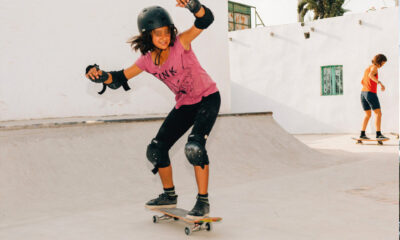Entertainment
Baby:91jr2ozelcq = Puppies: Everything You Need to Know About Raising Puppies
Published
10 months agoon
By
Admin
Raising a puppy is one of the most rewarding experiences a pet owner can have. Puppies bring joy, love, and endless energy into a household, making them beloved companions. However, they also require a great deal of care, attention, and training to grow into well-behaved and healthy dogs. This guide will cover everything you need to know about raising a puppy, including choosing the right breed, preparing your home, training, socialization, health care, and more.
1. Choosing the Right Breed
Choosing the right puppy breed is the first and most crucial step in raising a puppy. Different breeds have different temperaments, energy levels, and care needs. When selecting a breed, consider your lifestyle, living situation, and experience with dogs.
- Size: If you live in a small apartment, a large breed like a Great Dane or a Saint Bernard might not be the best choice. Instead, consider smaller breeds like a Pomeranian, Shih Tzu, or French Bulldog.
- Energy Level: Some breeds, like Border Collies and Australian Shepherds, have high energy levels and need a lot of physical and mental stimulation. If you’re not very active, consider a more laid-back breed like a Basset Hound or a Bulldog.
- Temperament: Consider the breed’s temperament and how it fits with your household. For example, Golden Retrievers and Labradors are known for their friendly and tolerant nature, making them great family pets.
2. Preparing Your Home
Before bringing your new puppy home, you need to make sure your home is puppy-proofed and ready for their arrival.
- Secure the Environment: Puppies are naturally curious and will explore every nook and cranny of your home. Ensure that hazardous items like electrical cords, cleaning supplies, and small objects are out of reach.
- Create a Safe Space: Designate a specific area for your puppy to sleep and relax. A crate can be a great option as it provides a sense of security and can aid in housetraining.
- Puppy Essentials: Make sure you have all the necessary supplies, including food and water bowls, a bed, toys, a collar and leash, and puppy food.
3. Training Your Puppy

Training is an essential part of raising a well-behaved dog. Start training your puppy as soon as you bring them home to establish good habits and prevent behavior issues.
- Housetraining: This should be your first priority. Take your puppy outside frequently, especially after meals, naps, and playtime. Be patient and consistent, rewarding your puppy for going to the bathroom outside.
- Basic Commands: Teaching your puppy basic commands like sit, stay, come, and down is crucial for their safety and your peace of mind. Use positive reinforcement techniques, such as treats and praise, to encourage good behavior.
- Crate Training: A crate can be a valuable tool for housetraining and providing your puppy with a safe space. Introduce the crate gradually, making it a positive experience with treats and toys.
4. Socialization
Socialization is a critical aspect of raising a well-adjusted puppy. Expose your puppy to different people, animals, and environments to help them become confident and friendly.
- Puppy Socialization Classes: These classes are a great way to expose your puppy to other dogs in a controlled environment. They also provide an opportunity to start basic training under the guidance of a professional trainer.
- Meeting New People: Introduce your puppy to a variety of people, including men, women, children, and people wearing hats or glasses. This will help prevent fear and aggression later in life.
- New Experiences: Take your puppy to different places, such as parks, pet-friendly stores, and outdoor events. The more experiences your puppy has, the more adaptable and confident they will become.
5. Health Care
Keeping your puppy healthy is a top priority. Regular vet visits, vaccinations, and proper nutrition are essential to ensure your puppy grows up strong and healthy.
- Vet Visits: Schedule a vet visit as soon as you bring your puppy home. Your vet will perform a thorough checkup, administer vaccinations, and discuss a health care plan, including spaying or neutering.
- Vaccinations: Puppies need a series of vaccinations to protect them from common diseases like parvovirus, distemper, and rabies. Follow your vet’s recommended vaccination schedule.
- Nutrition: Feed your puppy a high-quality puppy food that meets their nutritional needs. Puppies grow rapidly and require a diet rich in protein, vitamins, and minerals. Avoid feeding your puppy table scraps, as this can lead to obesity and nutritional imbalances.
6. Exercise and Play
Puppies are bundles of energy and need regular exercise to stay healthy and happy. However, it’s important to find the right balance between exercise and rest, as puppies are still growing and can easily become overexerted.
- Daily Walks: Take your puppy for short, frequent walks to help them burn off energy and get used to walking on a leash. Gradually increase the length of the walks as your puppy grows.
- Playtime: Play is an essential part of a puppy’s development. It helps them learn social skills, coordination, and how to interact with the world around them. Use toys like balls, tug ropes, and chew toys to engage your puppy in play.
- Mental Stimulation: Puppies need mental stimulation as much as physical exercise. Interactive toys, puzzle feeders, and training games can keep your puppy’s mind sharp and prevent boredom.
7. Grooming
Regular grooming is important for your puppy’s health and comfort. Start grooming your puppy early to get them used to the process and make it a positive experience.
- Brushing: Brush your puppy regularly to remove loose fur and prevent matting. The frequency of brushing will depend on your puppy’s coat type. For example, long-haired breeds like Shih Tzus may need daily brushing, while short-haired breeds like Beagles may only need brushing once a week.
- Bathing: Bathe your puppy as needed, but not too frequently, as over-bathing can dry out their skin. Use a gentle puppy shampoo and make sure to rinse thoroughly.
- Nail Trimming: Keep your puppy’s nails trimmed to prevent discomfort and injury. Start trimming their nails when they are young so they get used to the process.
- Ear Cleaning: Regularly check your puppy’s ears for signs of infection, such as redness, swelling, or a foul odor. Clean their ears with a vet-recommended ear cleaner to prevent infections.
8. Common Puppy Challenges
Raising a puppy comes with its challenges. Understanding these challenges and how to address them will help you navigate puppyhood more smoothly.
- Teething: Puppies go through a teething phase, usually between 3 to 6 months of age, where they will chew on anything they can find. Provide plenty of chew toys to soothe their gums and redirect their chewing behavior.
- Biting: Puppy biting is normal as they explore the world with their mouths. However, it’s important to teach your puppy that biting people is not acceptable. Redirect their biting to appropriate toys and use positive reinforcement to encourage gentle play.
- Separation Anxiety: Puppies can develop separation anxiety when left alone. Gradually get your puppy used to being alone by leaving them for short periods and gradually increasing the time. Provide them with a safe space and toys to keep them occupied while you’re away.
9. The Joys of Raising a Puppy
While raising a puppy can be challenging, the rewards are immeasurable. The bond you form with your puppy will grow stronger with time, and the love and companionship they provide are unmatched. Watching your puppy grow, learn, and become a beloved member of your family is a truly special experience.
Conclusion
Raising a puppy is a journey filled with joy, challenges, and lifelong memories. By choosing the right breed, preparing your home, investing time in training and socialization, and providing proper health care and nutrition, you can ensure your puppy grows into a happy, healthy, and well-behaved dog. Whether you’re a first-time puppy owner or adding a new furry member to your family, the effort you put into raising your puppy will be rewarded with unconditional love and loyalty for years to come.
You may like


Clipart: T4H-X66PIH4= Turkey: Creative Uses & Benefits

Key Software Systems: Leading Innovation in Courier Delivery Management

Refrigerated Trailers Benefits and Uses

Jessica Dorrell: A Comprehensive Overview

minecraft (2009) game icons banners

Everything You Need to Know About 24 Hour Fitness Membership Plans and Costs

wallpaper:znvmimg_hwe= stitch

drawing:_k5ftwawefm= pinterest

How Much Does Golden Corral Cost for Adults? Understanding Golden Corral Adult Prices

Understanding IP Gacor: A Comprehensive Overview

Welcome to Simp City Forum!

Best Website For Overseas Soccer Relay

What Skateboarding Does To Your Body

Stages of Registration of a Company As An LLC

Navigating the World of News: A Guide

The Allure and Significance of Lavender Farms

Mastering the Drawing: A Step-by-Step Guide to Basketball

Exploring newbie blogs: A deep dive into the world of networking insights

How to Sign In to Kahoot: A Comprehensive Guide

Discover the Journalism Excellence of the Jerusalem Post

Clipart: T4H-X66PIH4= Turkey: Creative Uses & Benefits

Key Software Systems: Leading Innovation in Courier Delivery Management

Refrigerated Trailers Benefits and Uses

Jessica Dorrell: A Comprehensive Overview

minecraft (2009) game icons banners

Everything You Need to Know About 24 Hour Fitness Membership Plans and Costs

wallpaper:znvmimg_hwe= stitch

drawing:_k5ftwawefm= pinterest

How Much Does Golden Corral Cost for Adults? Understanding Golden Corral Adult Prices





